TVS Motors MD Echoes Rajiv Bajaj: China Can Easily Mess With India's Electric Vehicle Production
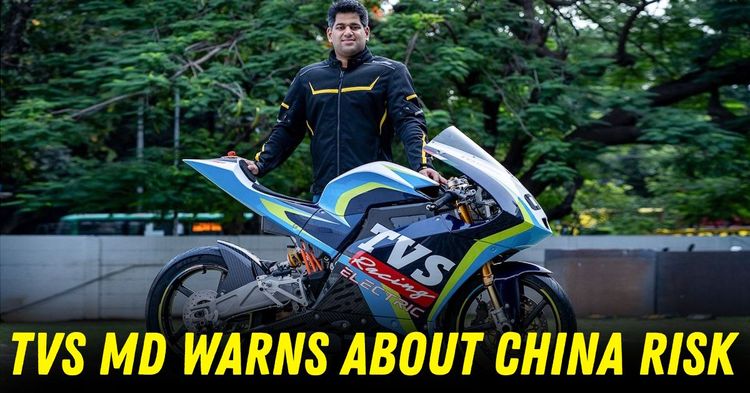

After Rajiv Bajaj, TVS Motors MD Raises Concerns Over China Disrupting India's EVs
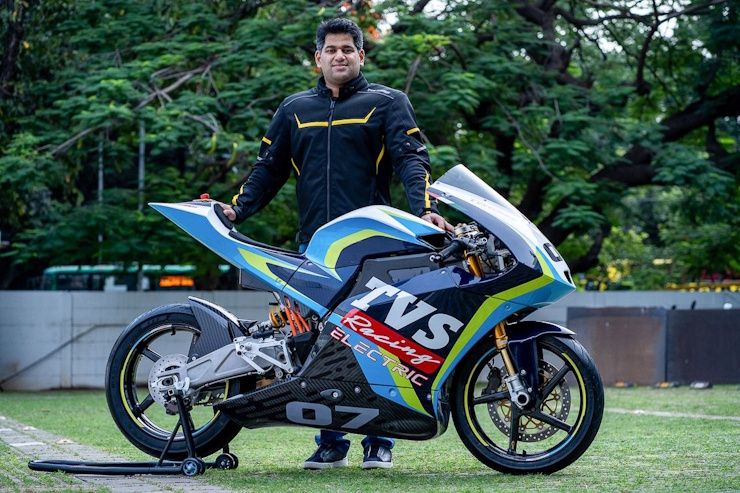
A quiet warning is growing louder in India’s electric vehicle industry. What began as a pointed comment by Bajaj Auto’s Rajiv Bajaj has now found resonance with TVS Motor Company Managing Director Sudarshan Venu.
His recent remarks have added serious weight to a growing concern: China’s dominance over critical EV supply chains, especially rare earth magnets, could derail India’s electric mobility future before it finds its footing.
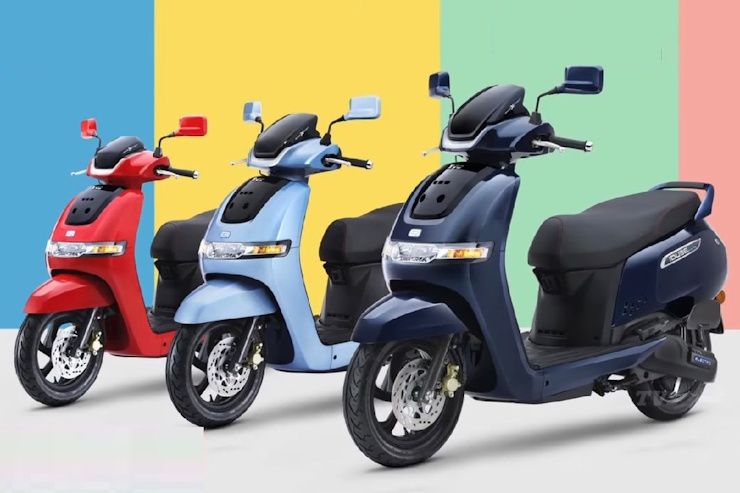
While most conversations around Chinese influence has focused on aggressive pricing, Sudarshan Venu shifts the spotlight to something more fundamental: dependency. In an interview, he warned that Chinese control over the global supply of rare earth materials, motors, and key electronic components poses a significant strategic risk. These are not just parts that can be swapped out. They are the very core of an electric vehicle’s performance and efficiency.
Rare earth magnets, which are essential for EV motors, are almost entirely sourced from China. Any disruption in this supply, whether due to geopolitical tensions or export restrictions, would directly affect production timelines, pricing, and even product development for Indian EV players.
Venu’s concern is clear. India may be setting itself up for a dangerous over-dependence on a single external source. And if Chinese interests decide to pull the plug, even temporarily, the impact would be severe across the ecosystem, from startups to legacy manufacturers.
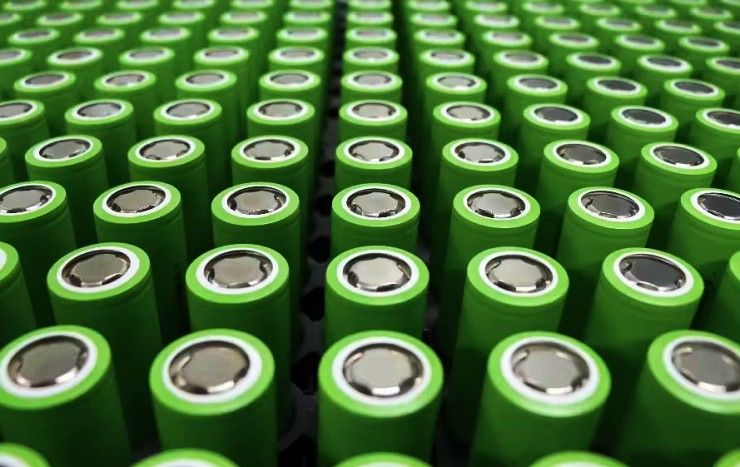
Unlike other sectors where imports are easily substitutable, EVs are heavily reliant on a very narrow set of high-tech inputs including lithium-ion cells, BMS systems, power electronics, and rare earth permanent magnets. While India is actively building its own battery ecosystem, the dependence on Chinese vendors for magnets and drive motors remains largely unchallenged.
And this isn’t just about parts. These components are increasingly embedded into vehicles as pre-packaged modules. This limits the ability of Indian manufacturers to customise, optimise, or even repair components locally. It also means data and system control are often routed through black-box Chinese software, raising further concerns over cybersecurity and localisation.
Venu’s point is not hypothetical. Recent export controls imposed by China on graphite and gallium, both used in EV and semiconductor applications, have demonstrated how fragile and politically influenced the EV supply chain truly is.
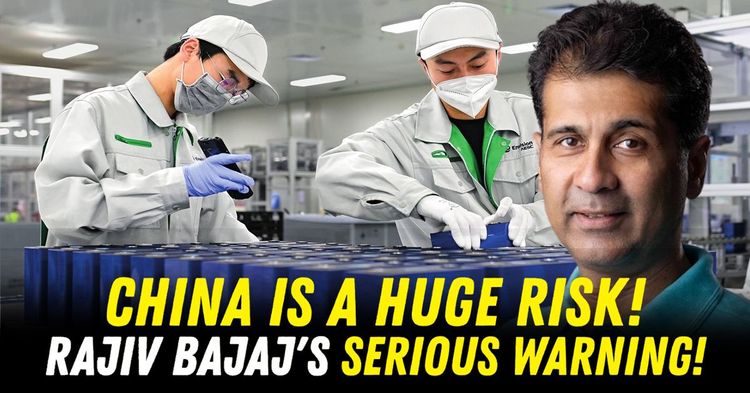
Rajiv Bajaj had earlier raised the red flag about Trojan Horse EV startups in India. These are brands that present themselves as local but are essentially funded, supplied, and steered by Chinese entities. Sudarshan Venu, while more measured in tone, adds a crucial technical angle to the discussion.
He argues that the risk is not only competitive but existential. If Indian companies do not diversify their component sourcing and build internal competencies around motors, magnets, and electronics, they may soon become mere assemblers rather than manufacturers. Worse, they may be forced into unsustainable price wars, with product quality and safety compromised in the race to compete.
The broader industry consensus seems to be shifting, from blind EV enthusiasm to a more strategic evaluation of how the shift happens. It is no longer just about electrification for its own sake, but about ensuring that India doesn’t trade oil dependence for a different, riskier kind of dependency.
Government schemes like the PLI for Advanced Chemistry Cells and incentives for localisation are steps in the right direction. But Venu’s comments suggest these may not be enough. What’s needed now is an accelerated push to develop rare earth alternatives, promote local motor manufacturing, and support deep-tech innovation around EV powertrains.
Even more importantly, there’s a need for policy-level checks on foreign-controlled supply chains being routed through local facades. If Chinese interests are embedded deep within so-called Indian EV brands, then the control over price, performance, and product direction may quietly lie outside national borders.
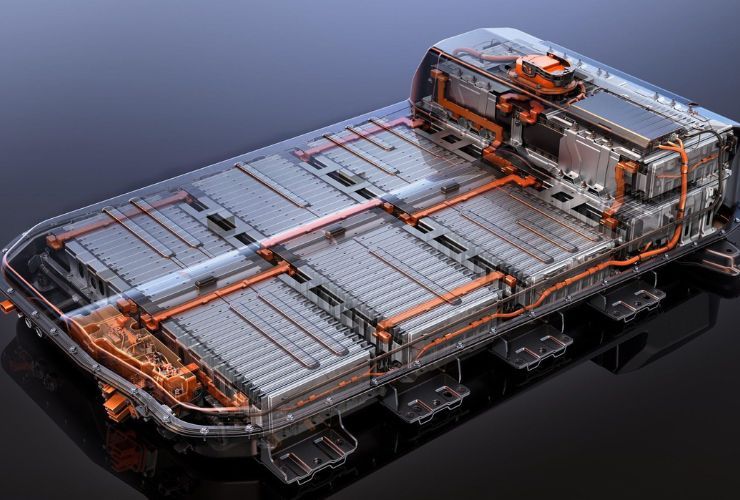
Sudarshan Venu’s comments come at a time when the industry is at an inflection point. The transition to electric mobility is gathering pace, but the foundation on which it rests is proving dangerously hollow in places. It’s not just about batteries and charging anymore. Magnets, semiconductors, software, the entire spine of the EV is at stake.
The warning is clear. India must invest now in securing its EV supply chain or risk being caught in a chokehold later. The message from two of the country’s top auto bosses is no longer one of polite caution. It is a call to action. And if it’s not heeded soon, the very autonomy of India’s EV future could be compromised.